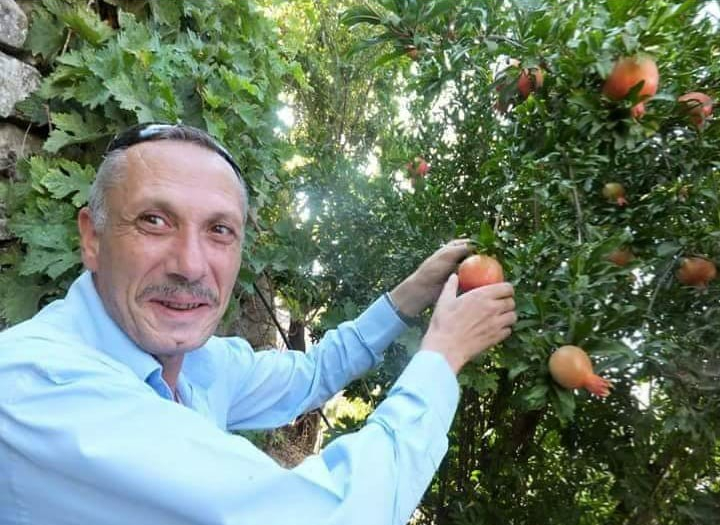By Tom Anderson & Therezia Cooper
Palestinians have called for international action on 17 April 2013 in solidarity with Palestinian prisoners held in Israeli jails. Corporate Occupation has been investigating the companies involved in the Israeli prison system and this article is part of a series of articles and interviews which will be released over the coming weeks focusing on companies providing equipment and services to Israeli jails.
In January and February 2013 Corporate Watch interviewed a number of ex-prisoners with the aim of highlighting the conditions for Palestinian political prisoners in Israel’s jails, and allowing their personal stories to be heard. This is the testimony of Salah, a 27 year old French-Palestinian man from Jerusalem who has spent 7 years and 10 months in Israeli prisons since he was 16 years old.
A video interview with Salah can be viewed here.
When Salah’s was first arrested he was sentenced to six months in prison. The second time was when he was 18, this time he was held for four months in administrative detention. Administrative detention has been imposed on Palestinians since the time of the British Mandate. In its current form administrative detention allows the Israeli state to imprison Palestinians indefinitely on the basis of secret evidence without charging them or allowing them a trial.
Salah’s most recent arrest was in 2005, he was sentenced to seven years in prison and he was not released until the Gilad Shalit prisoner exchange in 2011(A deal where 280 Palestinian prisoners were exchanged for the release of Gilad Shalit, an Israeli soldier captured in Gaza). Corporate Watch asked him to tell us what it is like being held in Israeli custody.
No justice in a military courts
On 31 August 2001, when Salah was only 16, soldiers came to his house looking for him in the middle of the night, accusing him of fly-posting martyr posters (posters of people killed by Israeli forces) around the city. After being taken to the Russian compound interrogation facility (also known as Al Moskobiyya ) in Jerusalem, he experienced 60 days of interrogation where the investigators accused him of being “close to the PFLP” (the Popular Front for the Liberation of Palestine) and involved in its youth movement. Israel considers the PFLP to be an illegal terrorist organisation.
While he was in the Russian Compound he often spent 20 hours a day with his arms tied behind his back to the chair and also tied up with leg shackles. He was allowed contact with the Red Cross after three days, but did not have any contact with his family during this time. He was held for 20 days before he had access to a lawyer.
During his first time in prison, there were around 80 other juvenile prisoners held with him who had been taken to Israel from both the West Bank and Gaza, in violation of Fourth Geneva Convention prohibitions (see here). Many of them had been convicted in military courts, and most never received a visit as their families did not have permits to visit Jerusalem, increasing the young people’s sense of isolation. “You don’t look for justice in a military court”, Salah said. “The military courts are parts of the occupation. In those courts you are condemned from the start”.
The conviction rate of Palestinians in Israeli military courts is consistently above 99.7%. Despite their age, the prisoners only had one teacher between them in the prison and that teacher only came once a week to teach Arabic.
His second arrest was in 2004, whilst he was a student at Bethlehem university. He was sleeping in a house with five friends when soldiers entered the building. They said that one of the people in the house was wanted by the Israelis, then arrested all five of them. They all spent four to nine months in administrative detention, with the wanted man going to prison for five years. The whole case was based on secret evidence and even the lawyers for Salah and his friends did not get to see the case against them.
“Administrative detention is a kind of psychological torture where you never know if you are going to be released at the end of each detention period”, Salah said. “Sometimes they only tell you on the same day as the possible release if they are extending it or not. It is torture for you and for your family”. There is no upper time limit for administrative detention in Israeli prisons so this circle can be repeated indefinitely.
In march 2005 Salah was arrested for a third time. He was detained at Qalandia checkpoint between Jerusalem and Ramallah where he was told that he was wanted by the Israelis, then blindfolded, handcuffed and shackled before he was put into a military vehicle and driven to the Russian compound. Once there he was body searched.
For his first month in detention he was kept completely isolated in a dark cell with a thin mattress and a thin blanket and endured 22 hour long interrogations.
He was not allowed access to his lawyer for 65 days. The accusation this time was that he had intended to assassinate Ovadia Yosef, the ‘spiritual leader’ of Shas, an ultra-orthodox religious party in Israel. The evidence presented for this allegation was that Salah had passed Yosef’s house in a car and was thought to have ‘observed’ him. “If you are an activist in Jerusalem that is all you have to do for them to say that you are planning an assassination”, Salah commented.
During his lengthy interrogations, the interrogators used substantial psychological pressure to make Salah talk:
“They used the idea of threats against your family to make you talk. Just before my arrest I had dropped my dad off at the hospital as he needed to have a heart operation. One day, after I had been interrogated for around a week, the Israelis came to my cell and told be to come and look through a peep hole. On the other side was my dad, looking weak, being interrogated by them.”
After his interrogation period Salah was moved to Be’er Sheva prison in the Naqab (Negev).
Prison conditions
We asked Salah to tell us more about the conditions that he witnessed and experienced throughout his more than seven years in Israeli prisons.
For many prisoners one of the hardest things about prison is the separation from their families. Although in theory most prisoners should be allowed one visit every two weeks for 45 minutes, this is not the reality for most. People being held under administrative detention are often denied visits altogether, and other Palestinian prisoners fall into three categories: Jerusalem, West Bank and Gaza. As most prisoners from the West Bank and Gaza are imprisoned inside Israel, in breach of the Geneva convention, their families have to apply through the Red Cross to get a permit to enter Israel for prison visits. These application are often denied.
As a result many prisoners spend four to five years in prison without a visit. Israeli security services often takes advantage of families in this situation, Salah told us, and ask families for some level of cooperation with the Israeli state in exchange for a permit to visit their loved ones. The people lucky enough to receive visits are still denied any physical contact with their families, as all communication takes place separated by a glass screen.
Between 2007 and 2011 prisoners were denied books or educational materials as a form of collective punishment for the captivity of Israeli soldier Gilad Shalit. This only ended after a prolonged hunger-strike by prisoners demanding improved conditions. At the moment one of the biggest issues is the access to medicines. According to Salah prisoners can spend months trying to get medicines for a particular illness and when they finally get some it is hardly ever the right one.
Prison transportation
One frequent complaint by prisoners is the harsh conditions during prisoner transportation. Although the Israeli occupation forces illegally transfer Palestinians to Israel for imprisonment, their cases are heard in a military court, so every time they have a hearing they are transported back to the West Bank where Salem and Ofer military courts are located. Salah told us about his experience of this transfer:
“When you have a hearing you have to get up at five o’clock in the morning or so. You get put in a small room and have to wait for hours until the buses come. The buses that do the transportation look fine from the outside, but when you get inside they are horrible. Sometimes you can be in this bus for twelve hours without a break. Inside they are all made of steel. When it is hot outside it is boiling and when it is cold it is very, very cold. The bus takes around 50 prisoners and you are handcuffed and shackled during transportation. You are not allowed a toilet break, food or water during the journey”.
In 2008 Adalah, The Legal Center for Arab Minority Rights in Israel, and Physicians for Human Rights Israel petitioned the Israeli Supreme Court for better prisoner transport conditions, but according to prisoner evidence, improvements have yet to materialise.
“The Israeli prisons refuse any investigation by international bodies about their prisons”, Salah said, “This is because they know that their prisons are in breach of international standards.”
During our recent visit Corporate Watch applied for a permit to visit an Israeli prison. The request was turned down.
As Corporate Watch has previously reported, international companies such as Samsung, Canon and Motorola provide equipment used in Israeli prisons while G4S signed a contract in 2007 to provide services to all prisons within the Israeli Prison ‘Service’.



0 Comments